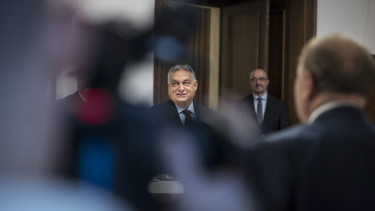Hungary cenbank remains relaxed, will follow ECB - Deputy Governor
- The latest inflation numbers were lower than expected.
- Inflation could remain around 3% even beyond the middle of 2019, provided that the cabinet launches reforms to improve competitiveness. Higher productivity would also be required.
- Reforms would also be needed to lift economic growth above 4% in a sustainable way, as the effect of the central bank’s own stimulus measures could start to wane over the coming years.
- “As long as the ECB maintains loose monetary conditions, the Hungarian central bank also has room to manoeuvre to maintain them. It follows that it is more likely that the NBH will take any steps only after the ECB moves."
- The HUF 500 bn mortgage bond purchase programme announced by the MNB is large enough for the bank to achieve its monetary policy goals.
- The central bank is currently not concerned about rising housing prices.
Click on the link below for a summary of Nagy’s presentation at Portfolio’s conference last week.
We are not too concerned about domestic inflation trends, because we see these lines of defense
, Nagy said, adding that it is unlikely to start tightening up its easy monetary policy before the ECB begins raising rates in 2019.While the Czech and Romanian central banks have started raising rates to combat price increases, the National Bank of Hungary has ample room to manoeuvre as it expects inflation to reach its 3.0% target only by the middle of next year. Annual headline inflation ran at 2% in March, well below the bank’s 3% policy anchor, which has a tolerance band of a percentage point on both sides.
The incoming inflation numbers, if anything, have surprised more to the downside
, Nagy said, adding that cuts in corporate and payroll taxes have helped prevent a spillover from double-digit wage hikes into consumer prices.Nagy said the BUBOR (interbank rate), which is around zero now, can first start to increase around the end of 2019,
and, if this happens, then we can begin thinking about how to operate with the tools affecting either short or longer yields.
He reiterated that “the end of 2020 would be the time when we can begin to think about" the level of the base rate.Nagy said reforms would also be needed to lift economic growth above 4 percent in a sustainable way, as the effect of the central bank’s own stimulus measures could start to wane over the coming years.
In its latest Report on Inflation the MNB projected in March a slowdown in economic growth in the next two years, 4.2% for this year, 3.3% for 2019 and 2.7% for 2020.Nagy said the central bank was firmly focused on 3% inflation, dismissing the view that it would be content to let inflation rise to 4%, the top of its target range, to boost the economy.
The tolerance band can be used, but its use is justified in cases when there is a temporary increase in inflation, followed by a swift return to 3%
, Nagy said.While domestic inflation remains subdued and expectations anchored, external developments and the steps of the ECB would have a bigger bearing on the conduct of policy, Nagy said.
The ECB is also running loose monetary conditions, but the market expects that this will end at some stage. Its timing, pace and the steps are very important and can have a big impact on us as well
, he said.“As long as the ECB maintains loose monetary conditions, the Hungarian central bank also has room to manoeuvre to maintain them. It follows that it is more likely that the NBH will take any steps only after the ECB moves," he added.
Nagy added that the central bank was pleased with the low volatility of the forint, adding that no major change, only fine-tuning, was expected in its policy toolkit.











